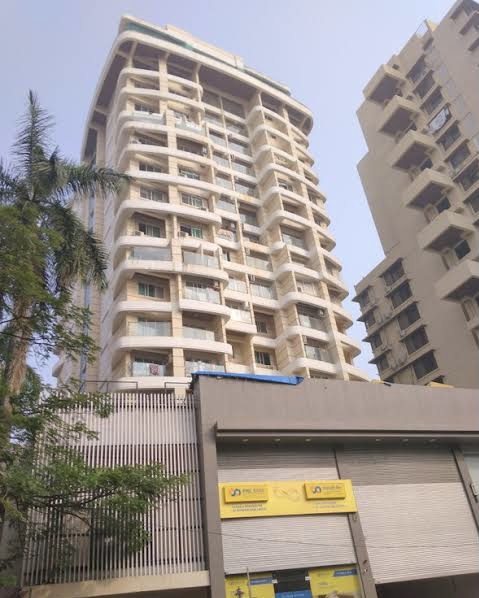By Bhavesh Kothari, Founder & CEO, Property First Realty
Bengaluru, the Silicon Valley of India, is synonymous with technological expertise and economic growth. Its skyline, replete with towering skyscrapers and vast residential tracts, speaks volumes of its booming real estate sector driven by India’s thriving IT and corporate sectors. The past few years have seen Global Capability Centres (GCCs) emerge as a dominant factor in Bengaluru’s real estate dynamics.
GCCs are the Offshore Development Centres of global enterprises. These centres, driven by government policies, have highly impacted the residential and commercial real estate sectors of Bengaluru, besides raising the city’s global status. Bengaluru was the first choice for setting up GCCs in India because of its skilled manpower, innovative infrastructure, and cosmopolitan culture.
Favourable Government Policies Driving GCC Expansion
The Karnataka Government’s GCC Policy, which aims to set up 500 new GCCs by 2029, has been significantly driving the state’s urban growth. Besides bringing multinationals from all around the globe to Karnataka, the GCC policies of the state have driven significant infrastructure investments. This includes the enhancement of the Bangalore Metro and the Peripheral Ring Road, as well as the upcoming knowledge, wellbeing, and innovation city – KWIN city. These projects are aimed at connecting and improving infrastructure, thus making Bengaluru a desirable hub for residential and commercial investment.
Additionally, the policy is expected to create 3.5 lakh jobs, which will bring countless professionals to the city.
Also, the government’s efforts towards sustainable urban growth have promoted developers to embrace green building practices and eco-friendly designs. These initiatives align with the sustainability goals supported by multinational corporations operating GCCs, thus creating an appealing link between policy and real estate development.
Thriving Commercial Realty Driving Demand for Residential Spaces
The growth of GCCs has propelled Bengaluru’s commercial real estate sector. Industry reports show that between 2020 and 2023, Bengaluru accounted for 26.4 million square feet of GCC leasing, or 37% of total GCC leasing, thus making Bengaluru the largest contributor in this particular segment. Also, demand for commercial space has gone up, along with rental values as multinational companies are increasingly setting up large facilities. Occupancy percentages in business districts are also on the rise. A report by CREDAI and CRE Matrix says that the supply of high-end office space in six major cities has exceeded 700 million square feet, with Bengaluru accounting for the largest share at 28%.
Such high demand for commercial properties is creating ripples in the residential market as well. Let’s see how:
The GCC influx in Bengaluru has driven considerable economic growth by generating high-paying jobs and attracting affluent expatriates and skilled professionals. These employees, mainly mid-level and senior professionals, look for upscale living spaces to stay nearby, which in turn has increased the demand for luxurious apartments, gated communities, and smart homes designed with modern amenities in Bengaluru. The growing popularity of smart homes with installed IoT-enabled devices, energy-efficient systems, and advanced security solutions resonates with the tech-savvy lifestyle of GCC employees.
Residential Real Estate Trends
Evolving employee preferences have transformed the residential real estate scene in Bengaluru. Developers are now focused on developing high-end projects in North Bengaluru and districts like Whitefield, Sarjapur Road, and Outer Ring Road, which are conveniently located near major IT and GCC hubs. These areas provide proximity to workplaces besides offering serene and well-structured living environments. Consequently, integrated townships and mixed-use developments, which integrate residential, commercial, and recreational spaces, have gained immense popularity in such regions. For GCC professionals, it means convenience, connectivity, and improved living conditions.
Co-living spaces are equally gaining traction in Bengaluru, particularly among younger professionals and expatriates. Besides being affordable and flexible, these shared accommodations offer a sense of community, thus making them ideal for Bengaluru’s migrant workforce. Furthermore, the hybrid work model is also influencing the residential realty sector. More professionals look for homes that can also serve as productive workspaces. Consequently, developers are designing properties with dedicated office areas, high-speed internet, and ergonomic features to cater to these requirements.
Opportunities in Residential Real Estate Going Forward
GCCs’ influence on Bengaluru’s residential real estate market will increase in the coming years. The city will gain further recognition as a real estate hotspot as it solidifies its standing as a top spot for global capability centres. What’s more, the infrastructure development driven by GCCs has led to rising property prices in significant locations. Thus, developers in Bengaluru are reaping the benefits of the growing housing demand through innovative construction technologies and design principles to cater to the tastes and preferences of GCC employees. Smart city concepts, ranging from integrated digital infrastructure to sustainable practices, are also becoming part and parcel of residential projects. These developments address the requirements of professionals in the GCCs besides positioning Bengaluru as a global city offering premium living experiences. Due to its focus on urban planning, sustainable growth, and policy support, the city is well-positioned to maintain its competitive edge.
Future Prospects: Bengaluru as a Global Hub
With GCCs projected to generate an economic output of $50 billion by 2029, Bengaluru’s real estate market is set to grow exponentially. Property prices in prime GCC locations, such as North Bengaluru, are already seeing significant appreciation, averaging over ₹7,000 per square foot. These trends make the city a magnet for investors and end-users alike. Continued investment in infrastructure, sustainable development, and innovative real estate solutions should make Bengaluru a hub of excellence not only for global businesses but also homeowners.
Also Read: Bengaluru property values









